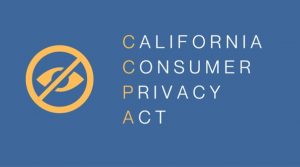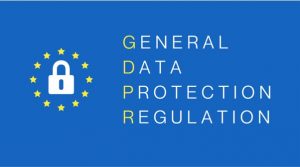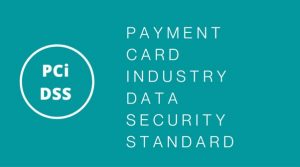Security vs. Privacy vs. Anonymity: Understanding the differences

When it comes to security vs. privacy vs. anonymity, is there a difference? And when do you choose one over the other?
Security, privacy, and anonymity are three of the most important principles to consider when using the internet. However, though most people associate them with having a secure digital presence, they do not mean the same thing. And you should choose one over the other depending on your online needs.
Although the three sometimes overlap, the only way to know which one you need the most in a given situation is to understand what they actually mean.
On this page:
Why you should know the distinction
You are likely using technology in your daily life more than the average person did 10 or 15 years ago. A result of this increased usage is the need to ensure that everything you do online is secure. But what about privacy and anonymity?
Over the past few years, the terms privacy, security, and anonymity have become buzzwords that websites, apps, and tech companies in general use to gain people’s confidence to promote their products and services.
Some of them are truthful and open about what they provide. Others take advantage of people’s lack of cyber awareness and inability to distinguish between meanings. Therefore, companies are protected from allegations of false advertising while also providing consumers with a false sense of confidence.
It would be best to consider what it means when the software or an app claims to protect your data or provide total privacy or anonymity. This helps you choose the best choice for your needs without being influenced by the halo effect of similar terms.
What does Security mean?
Security is a collection of safeguards and measures designed to protect your person and reputation, as well as your files, from malicious parties.
For example, data security can be maintained using antivirus software, encrypting sensitive files, securing accounts and computers with passwords, and using Two-Factor Authentication (2FA) on services.
Victims of security incidents can suffer direct harm as a result of their actions. This may be a data breach that exposes passwords and other sensitive information or a virus that corrupts your files and hardware—for example, by shutting off your device’s cooling fan.
It’s normal to prioritize security over the other privacy and anonymity. After all, security is a requirement rather than a privilege or a choice instead of the other two.
Unfortunately, however, more often than not, maintaining consumer protection is used as an excuse to violate privacy and anonymity rights.

What is meant by Privacy?
The right to keep such data and knowledge about yourself private and monitor who and what has access to it is privacy.
Consider privacy to be equivalent to owning an unencrypted and password-free smartphone. Everyone around you knows who owns the phone, but they have no idea what’s on it. Even if they don’t use your phone to harm or blackmail you, going through your phone without permission is an invasion of privacy.
When it comes to online privacy, it all boils down to how much personal information you can keep to yourself while searching the internet or using apps on any of your computers.
Invasion of privacy does not directly damage you as an individual; however, some forms of privacy invasions are illegal in certain countries.

Security and Privacy in practice
Here’s an illustration. When you open a checking account, you will be asked to provide personal details to your bank. So, what happens next? Here are three potential consequences involving your details (not the money you may have deposited in the checking account).
- Your privacy and security are not endangered. The bank uses your data to open your account and provide you with goods and services. They then proceed to safeguard that information.
- Your security is maintained, but your privacy is compromised. A marketeer buys some of your data from the bank, which you may have agreed to in the bank’s privacy disclosure. What was the result? Your sensitive information is in possession of more people than you would have wished.
- Both your security and privacy compromised. The bank database is exploited by cybercriminals, resulting in a security breach. Your data has been compromised and can be sold on the dark web. Your privacy has been violated, and there is a high risk of you becoming a victim of identity theft and cyber fraud.
Your personal information is almost certainly spread around the connected world — in government offices, healthcare providers, shops and restaurants, and in many of your online accounts. You might tell it’s everywhere — not literally, but in enough ways that it’s out of your hands.
If a cybercriminal gains access to that knowledge, it could be game over. Both your privacy and security can be jeopardized.
Differences between Security and Privacy
SECURITY |
PRIVACY |
Focuses on how policies get enforced |
Focuses on what kinds of data are important |
Sets methods, policies, and means to secure personal information |
Governs the distribution of data sharing, collecting, and usage |
Protects from users accessing your data and other types of information |
Sets criteria for usage, collection, retention, deletion, and storage of data |
Prevents data being compromised by malicious insiders and external attackers |
Ability to block entities, such as websites, browser, cable companies, and other internet service providers, that can track your information and browser history |
Typical Data Security Tools:
|
Typical Data Privacy Tools:
|
Security and Privacy vs Compliance
Having covered the differences between security vs. privacy, let’s take a look at some regulations and legislation designed to help provide guidance for preserving both and how they contribute to the data security landscape.

The CCPA, or California Consumer Privacy Act, is the standard United States legislation that governs how companies can process data about California residents and their households.
It records the data is covered and details the conditions for protecting the data, similar to the GDPR. This act applies to all agencies that manage data from California residents.
Find our more about CCPA, here

The GDPR or General Data Protection Regulation legislated by the European Union is an international standard for protecting EU citizens’ privacy.
This legislation provides key terms and definitions for who should have their data protected (data subjects), what forms of data should be protected (personal data), and how that data should be handled and safe.
This regulation applies to every agency that collects data from EU citizens.
Learn more about the EU GDPR Legislation

HIPAA is concerned with safeguarding patients’ confidential health information in the United States, covering everything from a patient’s date of birth to prescription medicine and X-rays, making this regulation is incredibly complicated.
Because of the enormous amount and scope of health care data available, and since it is also applicable to physical and digital forms that must be protected differently, making safeguarding private health information complex with a one-size-fits-all approach.
Meeting the requirements of each regulation applicable to your company is critical to avoid fines and other expensive penalties. However, you should note that meeting minimum enforcement obligations does not always result in adequate protection or privacy measures.
Organizations that prioritize the introduction of appropriate data privacy and security controls over merely meeting minimum regulatory requirements can often surpass those obligations while simultaneously strengthening their security posture and better positioning themselves to anticipate potential regulations. Tokenization is a powerful tool for accomplishing this.
Also see: Summary of the HIPAA

While it is mainly concerned with standardizing the security controls for payment data collection, storage, and transmission, it also contains measures for personal information commonly associated with payments, such as names and addresses.
It applies to all organizations that manage cardholder data from the major payment card brands, including banks, retailers, third parties, and others.
You can read more about this regulation in, Achieving compliance with PCI DSS
What is Anonymity?
Anonymous means hiding or concealing your identity but not your behaviour. In the real world, you can remain anonymous by hiding your face and fingerprints. You may stay anonymous in the digital world by preventing online organizations from gathering or storing information that may identify you.
For free expression, particularly for whistleblowers, Anonymity is essential. This is particularly crucial where having particular views and beliefs can compromise your safety or jeopardize your career and future.
Anonymity and privacy often overlap, allowing you to access the internet without being concerned with monitoring logs. Tracking logs monitor your every step and use the information gathered to create a profile of you or include you in statistics and studies and to which you haven’t agreed.

What separates Security, Privacy, and Anonymity?
Although privacy, anonymity, and protection all have different meanings, it’s becoming increasingly difficult to distinguish between them online.
Getting one may often weaken the other, such as how antivirus software keeps your files protected but does not always keep them private. Often they work together, and sometimes they don’t. To protect your privacy, for example, use anonymous social media profiles with forged credentials.
While one can be prioritized above the others, ideally, you would want to strike a balance between the three so that you can have a secure and free online experience without compromising convenience. This is dependent on your perception of the consequences of your online activities on your internet experience and real life.

